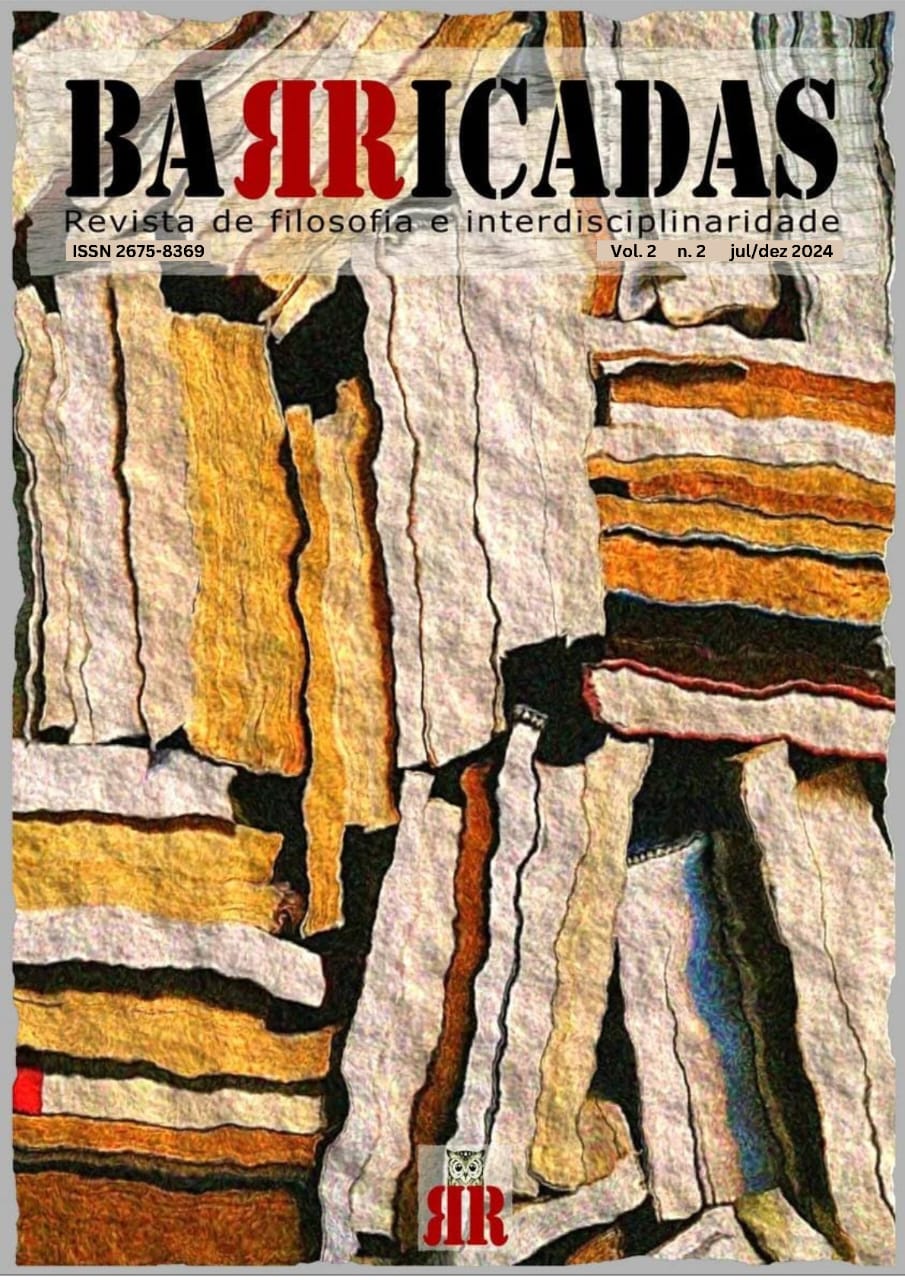David Hume and the need to follow the abstruse philosophy for the discovery of the proper province of human reason
DOI:
https://doi.org/10.18764/2675-8369v2n2.2024.1Keywords:
Abstruse philosophy, Moral philosophy, MetaphysicsAbstract
A recurring concern bothers David Hume (1711-1776) throughout his works, mainly in the warnings, prefaces and introductions: the nature of the relationship between academic philosophy and popular philosophy. Even nature imposing that we cannot dedicate ourselves entirely to studies without suffering and getting sick for it, Hume argues that we must insist on the search for truth, no matter how difficult this search is. Thus, wanting to be a man in the midst of all our philosophy is a necessity and not a moral precept. Against the image of the skeptical Hume, defended by many specialists in this philosophy, I defend, in this work, the idea that the predominant notion is not that the appropriate philosophy for humanity resides in a balance between abstruse philosophy and easy philosophy, but that, despite the advantages of easy philosophy, truth can only be found within abstruse philosophy. Thus, there is a prevalence of abstruse philosophy over easy, emphasizing the greater importance that this type of philosophy has for the Scottish philosopher. To this end, texts from different periods of the philosopher's life are approached: A kind of history of my life (1734), the introduction of Book I of the A Treatise of Human Nature (1739), as well as the warning, the opening pages of Book III and the preface to the Abstract (1740). Also discussed in this study is the essay entitled Of Essay-Writing (1742), Section I of the An Enquiry concerning Human Understanding (1748) and the essay Of Commerce (1752).
Downloads
References
AINSLIE, Donald C. (2015). Hume's True Scepticism. Oxford University Press UK.
DESCARTES, René; Adam, Ch & Tannery, Paul (1897). Discours de la méthode. In: Oeuvres de Descartes. J. Vrin.
DESCARTES, René; Haldane, Elizabeth Sanderson & Ross, G. R. T. (1911). Philosophical Works Rendered Into English. University Press.
GARRET, Don. Cognition and Commitment in Hume’s Philosophy (New York, NY: Oxford University Press, 1997).
HARRIS, James A. (2015). Hume: An Intellectual Biography. Cambridge University Press.
HUME, David. (1993). A kind of history of my life. 345-350. In: the Cambridge companion to Hume. Edited by David Fate Norton. Cambridge University Press.
HUME, David. A Treatise of Human Nature (1739-1740), ed. L. A. Selby-Bigge; 2nd edn., ed. P. H. Nidditch (Oxford: Clarendon Press, 1978).
HUME, David. Essays: Moral, Political, and Literary. (rev. edn.) (1741/1777), ed. Eugene F. Miller (Indianapolis, IN: Liberty Fund, 1987).
HUME, David. An Enquiry concerning Human Understanding: A Critical Edition (1748), ed. Tom L. Beauchamp (Oxford: Clarendon Press, 2000).
MOSSNER, Ernest C. (1954). The Life of David Hume. Oxford University Press UK.

Downloads
Published
How to Cite
Issue
Section
License
Copyright (c) 2024 Roni Ederson Krause de Oliveira

This work is licensed under a Creative Commons Attribution 4.0 International License.
Autores/as que publicam nesta revista concordam com os seguintes termos:
1) Autores/as mantêm os direitos autorais e concedem à revista o direito de primeira publicação, com o trabalho simultaneamente licenciado sob a Licença Creative Commons Attribution que permite o compartilhamento do trabalho com reconhecimento da autoria e publicação inicial nesta revista;
2) Os/As autores/as não serão remunerados pela publicação de trabalhos na revista;
3) Além disso, os conteúdos publicados são de inteira e exclusiva responsabilidade dos/as autores/as, ainda que reservado aos editores o direito de proceder a ajustes textuais e de adequação às normas da publicação;
4) Autores/as têm permissão e são estimulados a divulgar seu trabalho online (ex.: em repositórios institucionais ou na sua página pessoal), já que isso pode gerar alterações produtivas, bem como aumentar o impacto e a citação do trabalho publicado (Veja O Efeito do Acesso Livre).
Direitos autorais 2020 Barricadas: Revista de Filosofia e Interdisciplinaridade.

Este obra está licenciado com uma Licença Creative Commons 4.0 Internacional.



